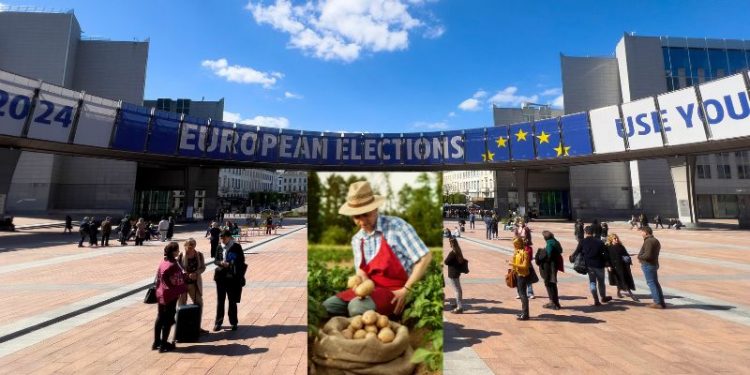In the run-up to the European elections, the German Potato Trade Association (DKHV) highlights critical priorities for future EU agriculture policy.
As the next European Parliament elections approach, the German Potato Trade Association (DKHV) underscores its key concerns regarding the future of EU agriculture policy. Thomas Herkenrath, President of the DKHV, emphasizes the importance of securing the future of the German potato trade and the entire potato industry. The primary goal, he asserts, is to provide companies with a stable economic outlook to meet contemporary challenges while promoting climate protection and sustainability.
The DKHV, representing around 170 members including potato trading companies, packers, peeling companies, breeders, producers, and manufacturers of packaging materials and potato technology, calls on EU MPs to foster sustainable growing practices. They advocate for an unbureaucratic EU agriculture policy, enhanced research funding, and the elimination of international trade restrictions to bolster the industry’s innovative capacity and competitiveness.
Key Concerns of the DKHV for the 2024 European Elections:
- Avoiding Additional Bureaucratic Requirements and Mandatory Impact AssessmentsThe potato industry is committed to promoting a sustainable and high-quality natural product. Entrepreneurial freedom is vital to fostering innovation and ensuring supply security within the sector. The DKHV advocates for minimizing bureaucratic hurdles by adhering to the principle of reducing bureaucracy or the one-in-one-out rule when implementing legislative proposals. They reject additional documentation and reporting requirements, stressing the need for reliable impact assessments across the economic chain.
- Promoting Research and Innovation for Greater SustainabilityInnovation is a cornerstone of the potato industry. Policymakers must provide increased support for research and development throughout the entire value chain. This includes advancing modern sorting, cooling, and packaging systems, as well as expanding digitization in rural areas. Enhanced research and innovation are crucial for achieving greater sustainability within the industry.
- Reducing International Trade BarriersThe potato industry plays a significant economic role in Germany and Europe. The DKHV urges EU policymakers to work towards removing phytosanitary trade barriers to exports in bilateral and multilateral negotiations with third countries. This support is essential to ensure European companies receive equal treatment compared to third countries when exporting. Political backing is expected to facilitate fair trade practices and bolster the industry’s global competitiveness.
- Adopting a Holistic Approach to Sustainability and Promoting New Potato VarietiesPotatoes are among the most sustainable foods, contributing positively to soil fertility, erosion protection, and low water consumption. However, the industry faces challenges from climate change, extreme weather, new pests, and diseases. To protect domestic potato cultivation, a holistic sustainability approach must be prioritized, balancing social, ecological, and economic pillars.Sustainable resistance management is vital for securing potato cultivation. The DKHV calls for the implementation of efficient protective measures and increased support for research and development in sustainable plant protection and fertilizer use. Ensuring timely access to modern breeding and cultivation methods is crucial for the industry’s future.
The DKHV’s comprehensive approach to future EU agriculture policy aims to secure a thriving, sustainable potato industry that can meet contemporary challenges and leverage innovative solutions for continued growth.







